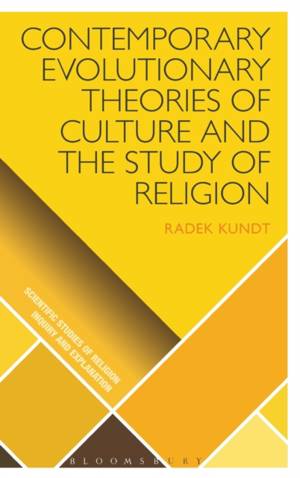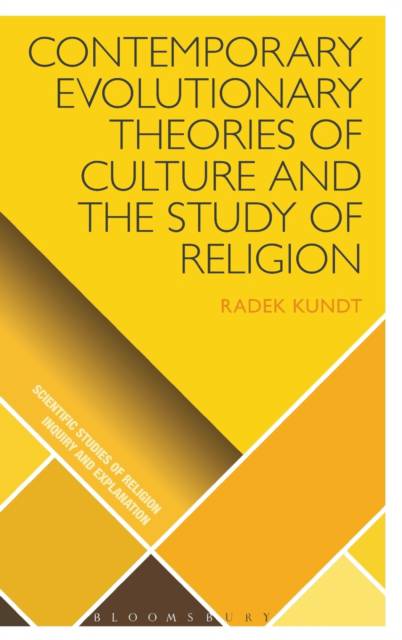
Vous voulez être sûr que vos cadeaux seront sous le sapin de Noël à temps? Nos magasins vous accueillent à bras ouverts. La plupart de nos magasins sont ouverts également les dimanches, vous pouvez vérifier les heures d'ouvertures sur notre site.
- Retrait gratuit dans votre magasin Club
- 7.000.000 titres dans notre catalogue
- Payer en toute sécurité
- Toujours un magasin près de chez vous
Vous voulez être sûr que vos cadeaux seront sous le sapin de Noël à temps? Nos magasins vous accueillent à bras ouverts. La plupart de nos magasins sont ouverts également les dimanches, vous pouvez vérifier les heures d'ouvertures sur notre site.
- Retrait gratuit dans votre magasin Club
- 7.000.0000 titres dans notre catalogue
- Payer en toute sécurité
- Toujours un magasin près de chez vous
Contemporary Evolutionary Theories of Culture and the Study of Religion
Radek Kundt
296,95 €
+ 593 points
Format
Description
Radek Kundt compares the notion of evolution in cultural evolutionary theories with neo-Darwinian evolutionary theory to determine the value of the biological concept for studying culture.
Contemporary Evolutionary Theories of Culture and the Study of Religion surveys the historical background of cultural evolution as used in the study of religion, pinpointing major objections to classical nineteenth-century theories. Radek Kundt argues that contemporary theories of cultural evolution do not repeat the same mistakes but that when they are evaluated in terms of fitting the core requirements of neo-Darwinian natural selection, it is clear that they are not legitimate extensions of neo-Darwinian theory. Rather, they are poor metaphors and misleading analogies which add little to conventional cause-and-effect historiographical work. This book also introduces an alternative evolutionary approach to the study of culture which does not claim that the principles of neo-Darwinian evolution should be applicable outside the biological domain. Radek Kundt shows that this alternative evolutionary approach nevertheless provides a deeply enriching line of enquiry that incorporates both biological evolutionary history as shaping cultural change and culture as a force acting on the gene.Spécifications
Parties prenantes
- Auteur(s) :
- Editeur:
Contenu
- Nombre de pages :
- 192
- Langue:
- Anglais
- Collection :
Caractéristiques
- EAN:
- 9781474232241
- Date de parution :
- 19-11-15
- Format:
- Livre relié
- Format numérique:
- Genaaid
- Dimensions :
- 157 mm x 236 mm
- Poids :
- 430 g







